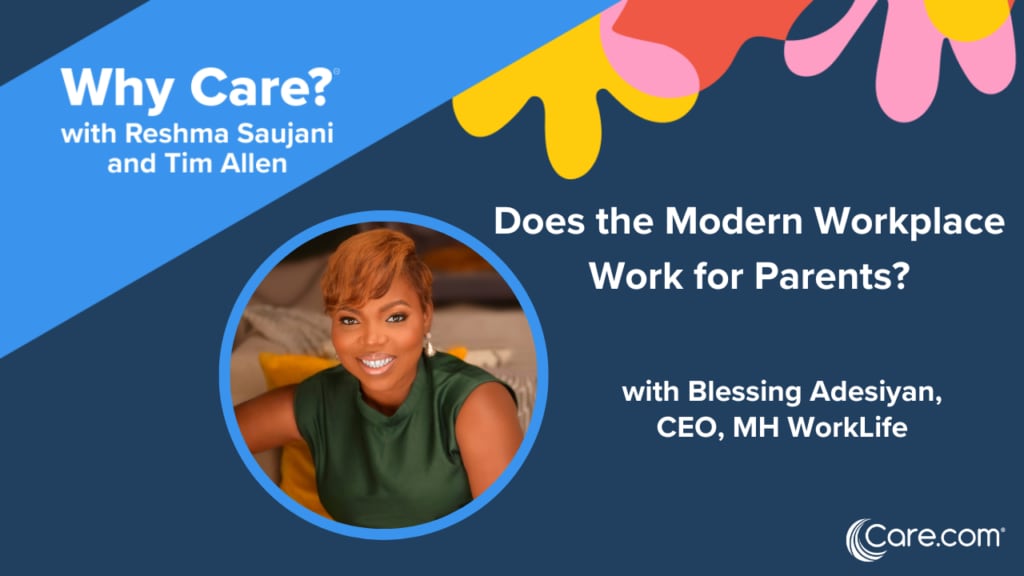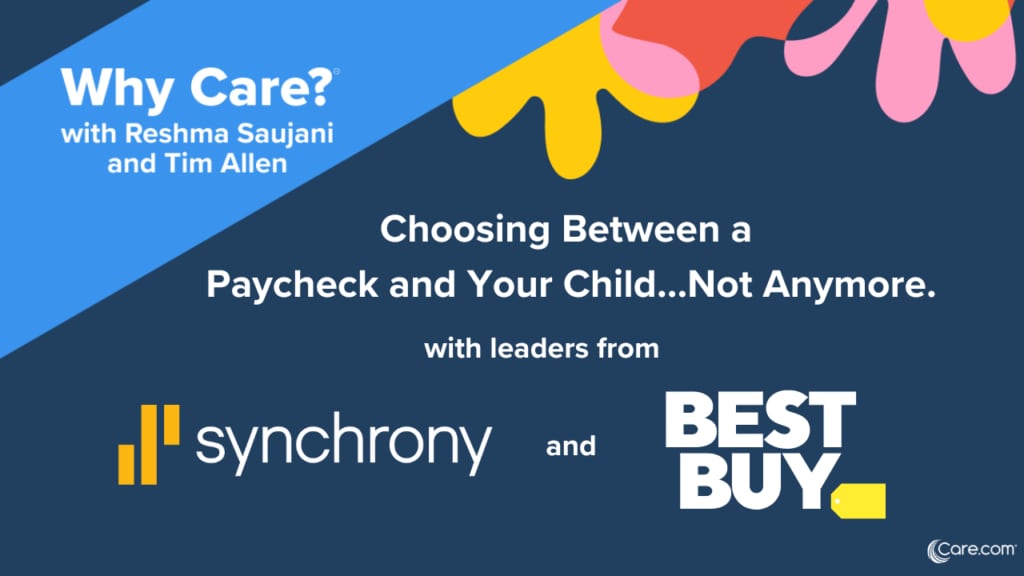Historically, new dads didn’t have to worry so much about taking paternity leave. Time off after baby was a “new mom thing.” That was the norm.
Not anymore. Parental leave is very much a “new dad thing,” too. Men are starting to see paid paternity leave as essential, not optional. And they’re getting loud about it.
Exhibit A: the “dadvocates.” Some have lobbied Congress for national paid family leave legislation (the U.S. currently has none, and is the world’s only industrialized nation not to offer paid maternity leave). Reddit co-founder Alexis Ohanian is in the vanguard. He makes frequent headlines calling for paid family leave and shares the value of paternity leave for fathers, their families, their employers, and society. Celebrities like the NBA’s Dwyane Wade and Chance the Rapper have received praise and support from fans for taking time away from the court and the stage to spend time with their new babies.
A cultural shift is happening. Some employers are starting to pay attention and take action. In recent years, Microsoft, Netflix, Walmart, and even the federal government have expanded their paid parental leave policies for new moms and dads.
Despite how far we’ve come, we still have a long way to go. Most U.S. companies don’t offer paid paternity leave, and 70% of fathers who do take it (if it’s offered) are back to work in just ten days or less, according to the U.S. Department of Labor. Many men also talk about a stigma at work – that taking time off to care for a new family member looks like they are not fully committed to their job.
Too often, dads are left feeling conflicted about meeting the demands of work and family. “Organizational systems and organizational culture haven’t quite caught up with what the realities are for today’s men and the role that fathers are playing,” says Brad Harrington, Executive Director of the Boston College Center for Work & Family, on the Equal Parts podcast. “No matter what we say about being an enlightened father and a hands-on caregiver, men still grapple with…this dissonance that exists between their sense of, What am I supposed to be doing? and What am I able to be doing?”
To keep pushing for positive change, men (and women) have to advocate for paternity leave and evangelize its benefits for families, employers, and society. Here are five of them.
1. It lays the groundwork for co-parenting and family stability
Dads who take paternity leave often have better relationships with their partner. This is especially true when both parents can take leave at the same time. Men learn with their partners how to become a family and navigate a new world of sleepless nights, logistics, and mental checklists. When did the baby eat last? How long should he nap for?? Is this the right way to swaddle?
Research has shown a connection between men who take paternity leave and increased marital stability. Sharing parental responsibilities early on lets both partners “struggle and succeed right alongside one another,” says Lauren Brody, author of The Fifth Trimester: The Working Mom’s Guide to Style, Sanity, and Big Success After Baby. “You set yourselves up for a real partnership that pays off for years as your children and your careers grow. Having made it through those early crazy days, each of you knows that the other is capable and loving, and you’re much more likely to trust one another.”
2. Kids reap the benefits early on and for life
Children experience a range of benefits when fathers take an early, active role in their lives. Skin-to-skin contact and other physical interactions like holding, feeding, burping, diaper changing, talking, and singing strengthen the father-child bond and leave babies healthier physically and emotionally, too. Later in life, this bonding can create a positive impact on a child’s cognitive development, their academic success, and their relationship with their father. “Kids whose dads took paternity leave have been shown to become more social as they grow up, perform better in school and even have higher IQs,” says fatherhood expert and dad of three, Armin Brott. “The earlier that dads get involved in actively taking care of their kids, the more involved they will be in the long haul.”
3. It builds a dad’s confidence
The only way you learn how to parent is by throwing yourself in and doing it. Practice won’t make perfect, but it will build your confidence – and the earlier a father can do that, the better. “Spending a big chunk of time with Olympia when she was a newborn gave me confidence that I could figure this whole parenting thing out,” says Ohanian about his paternity leave experience. “As an only child with no cousins, I didn’t grow up around babies; in fact, I had never held one until my daughter was born. At first, holding her terrified me. I am a giant and she’s so tiny … What if I break her? I didn’t – which was encouraging – and then I learned how to calm her crying, rock her to sleep and handle her toddler years with grace.”
4. Dads are happier at work (and that’s good for business, too)
Many men worry that requesting family leave time will hurt their careers. But research by Harrington over the past decade suggests the opposite. Men who take a more equal role in family caregiving, including taking paternity leave, report greater levels of satisfaction with their jobs and careers. That benefits their employer, too. Happy employees are more engaged and productive, and that can have a halo effect on their colleagues, as well. In a 2019 study examining the impacts of expanded corporate parental leave policies, Harrington also found that leave builds employee loyalty and plays an important role in attracting and retaining talent. Three-quarters of employees said they’re more likely to stay with their current employer because of its parental leave policy, and 90% of managers said parental leave is an important tool for employee retention and recruitment.
At Bank of America, for example, which in 2016 expanded its parental leave policy for new moms and dads from 12 to 16 weeks, employee satisfaction is “at an all-time high,” says Chris Fabro, the company’s Global Head of Compensation and Benefits. “It is certainly helping drive our ability to keep teammates in the bank and help them grow their careers here, so we see less turnover….We think it’s important for all teammates to take time away and really come back recharged and engaged and feeling good about themselves and their families. Because when they do that, they return to work even more committed than they were before.”
5. It supports gender equality in the workplace
The responsibility of parenting can’t be confined to one gender, nor should a company’s parental leave benefits. They must include paternity leave. “From an organizational perspective it’s great to celebrate women and to think of ways to help women progress,” explains Harrington. “But the other side of that is you have to be willing to say, ‘We celebrate the role that men play in the home.’ If a company offers leave for working parents and a father takes advantage of that, it should be supported. If we’re going to reach parity at some point and we’re going to have gender equality, the only way that’s going to work is if men are playing a more conspicuous, hands-on role in the home.”
It’s clear: the call for paternity leave in the United States is growing. As more men have the courage to opt in and be “dadvocates,” businesses will reap the benefits of a loyal, happier, and balanced workforce. If you’re in HR, take a look at your parental leave policies. Is there anything you can do to improve them?







